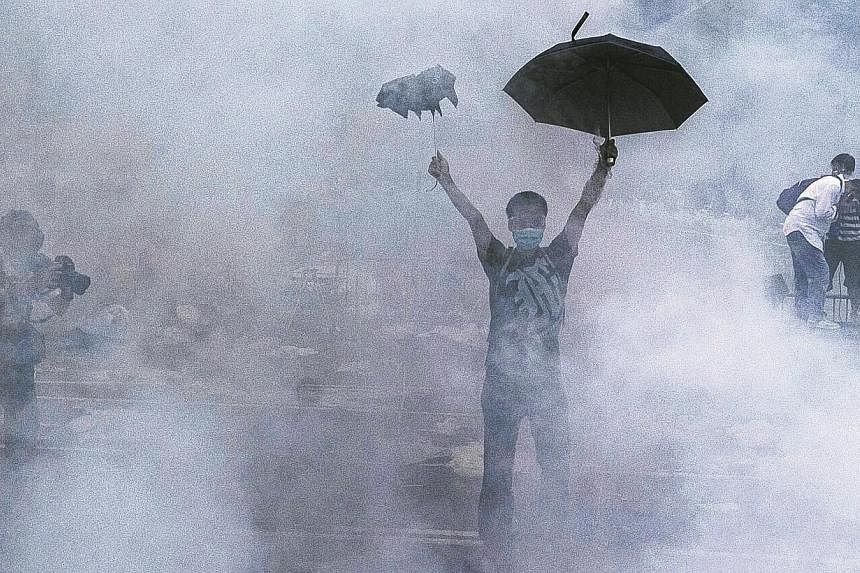DENYING his involvement in a tear gas attack last month on protestors calling for free elections in the Chinese territory, Hong Kong chief executive Leung Chun Ying has said it is "common sense" that the police commander at the scene called the shots.
Referring to the Sept 28 attack on Occupy Central protesters, Mr Leung told the media in Guangzhou on Monday that police action is not dictated by the leader of a special administrative region or any other region, the Hong Kong-based Chinese language paper Ming Pao reported on its website.
"As the head of the government, I should be concerned for all matters in the government, but the head does not make orders to police officers taking action in the streets. This is common sense," Mr Leung was quoted as saying by the South China Morning Post when asked to explain a remark he made in a Sunday interview with local broadcaster TVB that he did not make the decision to fire tear gas.
Fending off calls for his resignation, Mr Leung said while he is in favour of universal suffrage like many other Hong Kongers, the decision for free elections must be made under the Basic Law and passed by the National People's Congress Standing Committee.
The sit-in protests led by student activists in Admiralty, Causeway Bay and Mongkok have drawn supporters from all walks of life demanding for the right to vote for Hong Kong's leader by the next election in 2017.
Hong Kong's leader is currently selected by a small circle of 1,200 members, mainly Beijing loyalists and vested interests' representatives. Under new rules laid down on Aug 31, Beijing will vet candidates before the public is allowed to cast their votes - a decision that infuriated many Hong Kongers.
Mr Leung was in the southern Chinese city of Guangzhou to attend the 10th Pan-Pearl River Delta Regional Cooperation and Development Forum and Trade Fair on Monday.
Reiterating his refusal to step down, Mr Leung said at Monday's press conference he will not and need not resign.
He added that the government will continue to handle the protesters with the highest level of tolerance and low level of police action which he stressed was rare in Western democracy, Ming Pao reported.

